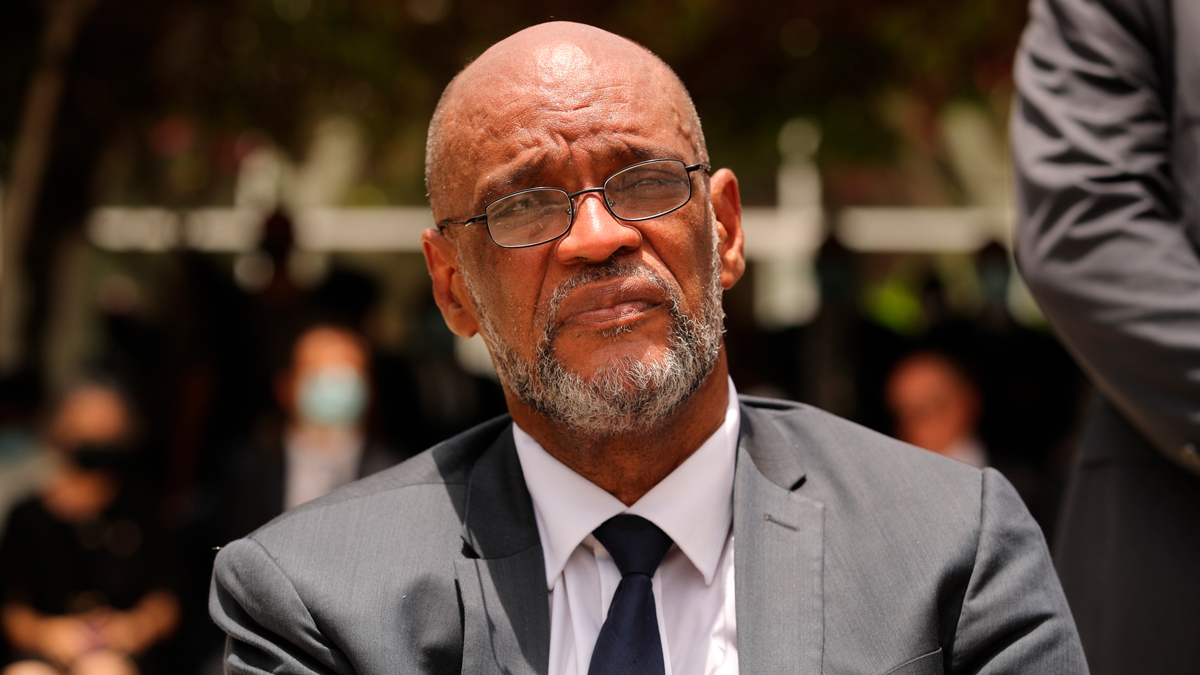Body camera video shows Miami-Dade Police officer Carlos Angulo taking Robert Menard out of his car during a traffic stop in the summer of 2017.
"Stop resisting, stop resisting," Angulo can be heard saying. "We asked you for your registration and you are playing a f--ing game."
NBC 6 Investigators obtained exclusive video of the incident - which was captured by five body cameras from responding officers.
They show Menard growing frustrated at the officers.
"You guys have better stuff to do, right?" he exclaimed. "This is the second time you guys pulled me over."
An internal affairs investigation determined that Angulo didn't use excessive force but found that he and others violated department policies.
Angulo got a "record of counseling" for making "discourteous statements" to Menard.
Local
Another officer was heard on video telling Menard "Hey cool guy, calm the f--k down and we will get the f--k out of here."
The same officer gave Menard a citation for having tinted windows but can be heard saying: "We don't write tickets for this, man...because of this fiasco, we are writing a ticket, because he is going to call internal affairs," referring to a relative of Menard who was in the passenger seat.
According to police records, that officer got a written reprimand for his actions.
Menard is now suing MDPD claiming he was racially profiled.
He's one of three people who have filed federal lawsuits against the department in the past month.
MDPD director Juan Perez won't discuss details of the cases but says they don't reflect the progress made by his department.
"99 percent of the time our officers are doing the right thing, despite some missteps," Perez said. "Isolated incidents should not be what defines us as a law enforcement agency."
An independent study released last year found a drop in the number of complaints and lawsuits filed against MDPD officers over excessive force, from a high of 52 lawsuits in 2011 to 4 in 2017.
Lisa Stolzenberg, an FIU professor who authored the report, credits the numbers to the implementation of body cameras.
"When you know that everybody is watching you, it makes you behave better - the police officer - but it also makes the person on the street that's encountering the cop to behave better," she said.
Records provided by the department also show a decline in use of force and internal affairs cases.
Miami-Dade is not alone.
The Broward Sheriff Office, who started using body cameras in 2016, says it has fewer complaints and use of force incidents since.
Last month, a cell phone video surfaced showing a BSO's deputy slamming Delucca Rolle's head to the ground in front of a crowd of high school students in Tamarac. The agency has not yet released the officers' body cam video as the investigation into the case continues.
But not all departments have seen the same results with their body camera program.
The number of use of force incidents and complaints have actually gone up in the City of Miami since its officers started using the technology.
The department says there's no specific reason behind the increase.
All three agencies say body cameras are a tool to protect their officers and the community.
"It gives us an opportunity to see a more closer look of what the realities were," said BSO Sheriff Gregory Tony. "It's not a matter of what the deputy says. It's not a matter of what the civilian is saying."
When a BSO deputy was accused of being rude during a traffic stop recently, the complaint was quickly dismissed because of what the body cam video showed.
But cameras can only help resolve complaints if they're on and the NBC 6 Investigators found that's not always the case.
There's no video of Officer Angulo approaching Menard's vehicle with his weapon drawn. The video starts when he's at the car window. And records show three officers who responded were disciplined for turning their cameras off before the traffic stop ended.
The Miami-Dade body camera policy requires officers to active the devices prior to exiting their vehicles or "as soon as practicable." It also states that they should continue to record "until the conclusion of the event."
But Perez said these type of incidents are rare.
"That number is minute to the number of videos that we captured," he said.
Perez said at the end, it's not about a camera but the officer wearing it.
"It still takes people to make the difference," Perez said.



